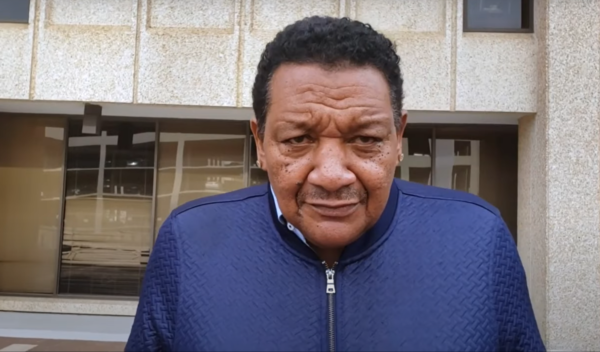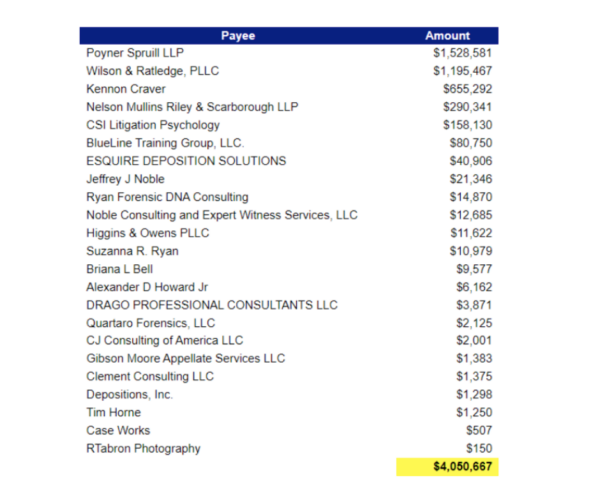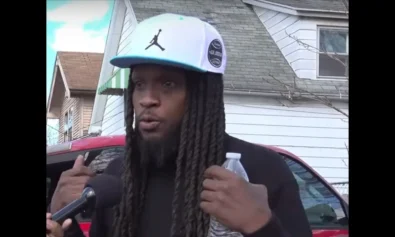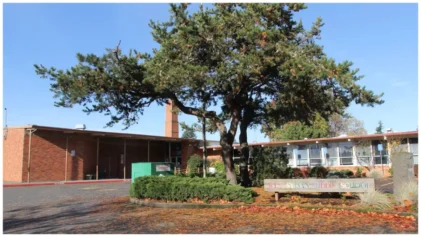A wrongfully convicted Black man, who successfully fought to have two murder convictions overturned and received a pardon from the North Carolina governor for those crimes, sued the city for $6 million and won.
However, officials in the city of Durham have rejected the jury’s judgment, deciding they will not pay the award after spending money to fight the case.

According to the News Observer, a federal jury found retired detective Darrell Dowdy, who spent 36 years with the city, lied on Darryl Howard in 1995. As a result, Howard spent 21.5 years of an 80-year sentence in prison.
A federal jury found that Dowdy violated Howard’s civil rights by fabricating evidence and purposefully conducting a poorly run investigation around the case. These actions resulted in a jury convicting Howard of “two counts of second-degree murder and one count of arson.”
The costly trial lasted several weeks, with the city spending more than $4 million in litigation in defense of the detective.
Still, the jury needed only an hour to return to the court with a decision that sided with Howard.
Howard and his attorney argued Dowdy was given the authority by way of his badge to set Howard up to be convicted of murdering Doris Washington, 29, and her 13-year-old daughter Nishonda in 1991.
The two females were found dead in their Few Gardens apartment. DNA evidence suggested both mother and daughter were sexually assaulted before they were set on fire. However, no DNA or biological evidence linked Howard to the crime scene or as the rapist.
At one point, there was an eyewitness who testified against Howard, but his accounts were scrutinized for being vague or contradictory. The witness reportedly even recanted his story to police over time.
In 2014, Durham senior resident judge Orlando Hudson vacated Howard’s conviction, but the state pushed back with an appeal. The Innocence Project decided to represent the 58-year-old, presenting new DNA evidence that led to a reversal of his conviction.
Originally, Howard asked for $48 million in damages: $2 million for each year he was incarcerated plus $5 million for the impact his imprisonment has had on his life.
The jury decided to award him $6 million.
Despite the finding, the Durham City Council opted to withhold the recommended seven-figure judgment in the case. The decision was made during a series of closed meetings over a three-month span, between December and February.
City Attorney Kimberly Rehberg said this was the first time a jury made “a bad faith finding,” regarding a city employee. “The city generally proceeds under the presumption that however conduct may have been portrayed in a complaint, the employee was engaged in the good faith execution of their duties on behalf of the city and was, thus, entitled to a defense,” she informed.
One of Howard’s lawyers Brad Bannon called his client an “actual victim.”
“They pay all of that money. They enrich a bunch of lawyers, and then the moment they have to pay the actual victim of the city’s conduct here, they say we’re not going to back this,” he said about the decision.
Here is a breakdown of the city’s legal expenses defending Dowdy.

“Do you know how hard that is in a system that gives police officers almost absolute immunity, that gives prosecutions complete immunity?” Bannon asked.
“It is not easy, I can tell you that,” he said, noting that his client did it and won. “It is offensive that it is not being honored.”
Rehberg wrote in a statement, “if the facts and circumstances of the claim or the suit in which the judgment is entered show that the officer or employee was engaged in the good faith performance of his duties on behalf of the City when the act or omission giving rise to the claim or suit occurred.”
“A jury of Mr. Dowdy’s peers determined that Mr. Dowdy engaged in fabrication of evidence and a bad faith failure to investigate,” she continued.
But that decision is about Dowdy, not the city, the municipality’s rep suggests.
“Initially the city and other employees were named in the lawsuit,” she said. “But those claims were dismissed or dropped by the time the case made it to trial.”
Dowdy’s lawyer Patricia Shields thinks the city should pay and not leave her client with the bill.
She revealed she had an inkling the city was not going to settle or pay a jury’s judgment against Dowdy as far back as August 2021. Someone close to the case told her the city didn’t believe they were obligated to pay if the court said he was guilty.
She also questioned the rationale to spend so much of taxpayers’ dollars to defend the former detective to simply refuse to pay the judgment, saying, “The city has known all along what Captain Dowdy did and decided to defend him on that basis. I am upset on behalf of my client, Capt. Dowdy, who spent 30 years of his life protecting the citizens of Durham,” she said as she submitted that he doesn’t have the $6 million to give — from the $76,000-a-year salary he made until he retired in 2007.
Poor People’s Campaign leader Rev. William J. Barber blasted the council’s decision, calling it “an injustice.” He noted the case wasted taxpayers’ money, considering the millions of dollars they spent on the trial. The preacher called for the council to change their minds, “While Mr. Howard didn’t die, his life died. His years died. His opportunity died. His time died. You took 20 years,” said Barber.
While the city is opting not to compensate Howard, legal documents show the city wants the wrongfully convicted man to pay the legal fees of two city workers dropped from the original lawsuit.


